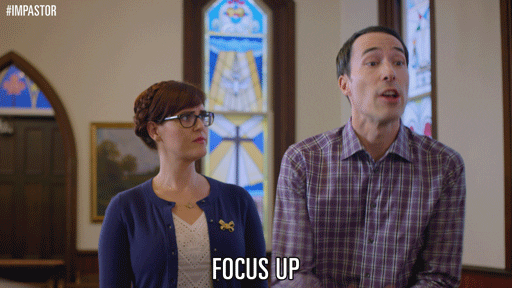We all hope for productive summers.
But between surprises that take us away from our aspirations, unanticipated delays, and the distractions of summer, we may not end up accomplishing as much as we hope.
With that being said, proper planning and tools can unlock your full potential over the summer so that you set yourself up for success in the upcoming academic year.

This could involve reviewing training or recruitment materials, analyzing student survey feedback, digitizing processes, inventorying supplies, and planning for the year to come.
Doing any or all of these during the downtime of summer is time well-spent since such actions can help your academic year be more effective.
Here are some other great tactics and strategies to consider.
3 tips for summer
1. Begin with the end in mind
Naming your goals is vital for creating your plan.
Goal setting should and can be a collaborative process with appropriate stakeholders to make sure everyone feels invested in the effort. The input should be structured and limited. You’ve likely participated in a meeting that got bogged down by discussions that weren’t oriented towards specific actions and solutions.
Prepare ahead of time by jotting down the questions you want the group to answer. Make sure you guide the conversation and keep it on point. Don’t let anyone bulldoze, and remember to keep the meeting moving along so that you don’t spend all your time focused on just one or two points.

To help with creating goals, I suggest using a popular method like SMART, HARD, or WOOP so that you have a framework to follow. The OKR methodology, which stands for objectives and key results, is particularly helpful for aligning goals within a team.
Goal setting can be a tricky business. There are a lot of schools of thought regarding whether you should be transparent about your goals with your teammates or keep them to yourself. In this case, it’s most important to do what works best for you. It can be great to have an accountability partner if you share your goals, but you also should be doing it for yourself, without needing affirmation from others.
Once goals are set, you should create a project plan that outlines the individual tasks, due dates, and owners. This will allow everyone to stay on track and monitor progress. It can be as simple as a spreadsheet with columns, since that’ll help everyone visualize the same plan and not have to do any guesswork.
But, ideally, you’ll utilize more advanced tools. This brings me to my next suggestion:
2. Get the right tools for the job
To do anything effectively and keep it all sorted, it’s helpful to use project management tools.
There are some amazing digital tools out there — such as Asana, Basecamp, and Airtable — which can help you visualize and organize your workflows. It may feel like extra work to set up a software tool, but being able to visualize the status of projects can increase your accountability and motivation. Some tools even let you tag collaborators to ask questions regarding their given tasks.

I’ve found these tools helpful in my personal life, too; I planned my wedding using Trello! I listed out everything I needed to do, tagged the other folks helping us, and added notes for context as needed. Then, once I completed each task, I was able to move it aside. At the end, I saw all of the progress I made over time. It was incredible!
Some of these tools can be a little intimidating at first. So, I recommend that you start slowly and keep it simple. Then, once you master the basics of your own workflow, you can start bringing in colleagues to collaborate and play around with more advanced features.
There are a lot of cool integrations for these tools, which can help with meeting scheduling, file management, and communication.
3. Plan for other people
This is really the most unpredictable aspect of the bunch. Once you’ve done your initial planning and implemented the right tools, things could still get delayed or held up by other people, no matter how well-intended they may be.
Summer can make this more difficult, too, since you or your colleagues might be out of the office for vacation. Make sure to ask people when they might be planning time away and either set deadlines accordingly or ask who might be able to fill in as a backup in their absence.
With that being said, during the summer, the inverse can also be true. Everyone has more extended time open without student appointments. So, there is an opportunity to give quality time to group retreats and focused time as a team towards strategic initiatives. You can involve more stakeholders and get a good dialogue going since everyone will be in the room together.
Consider how impactful it could be to have a whole day to discuss student retention strategies, for example, and be able to invite a cross-section of colleagues together.
Another simple but meaningful strategy is to set up regular meetings to check in with colleagues you’re actively collaborating with and provide ongoing support. Don’t just leave colleagues out in the cold; make sure you’re providing clear guidance from the start.

Lastly, work to help people feel comfortable with bringing up questions. No one is perfect, and there should be a respectful dialogue and collaboration, versus just dictating responsibilities and expecting people to read your mind.
Once you’ve mastered this, you could even start reaching out beyond your team for collaboration opportunities. The summer is a great time for this, with more social events going on during the warmer months in many areas.
The summer can seem like this magical elixir — the perfect answer to our time limitations during the academic year. But actually realizing the potential of this relative downtime period takes planning and preparation.
Being mindful of this ahead of time can ensure that you’re setting yourself up for success and poised to reach even greater heights in the year to come.
What are some of your strategies for the summer? Let us know via Twitter at @themoderncampus and @HigherEdGeek.





